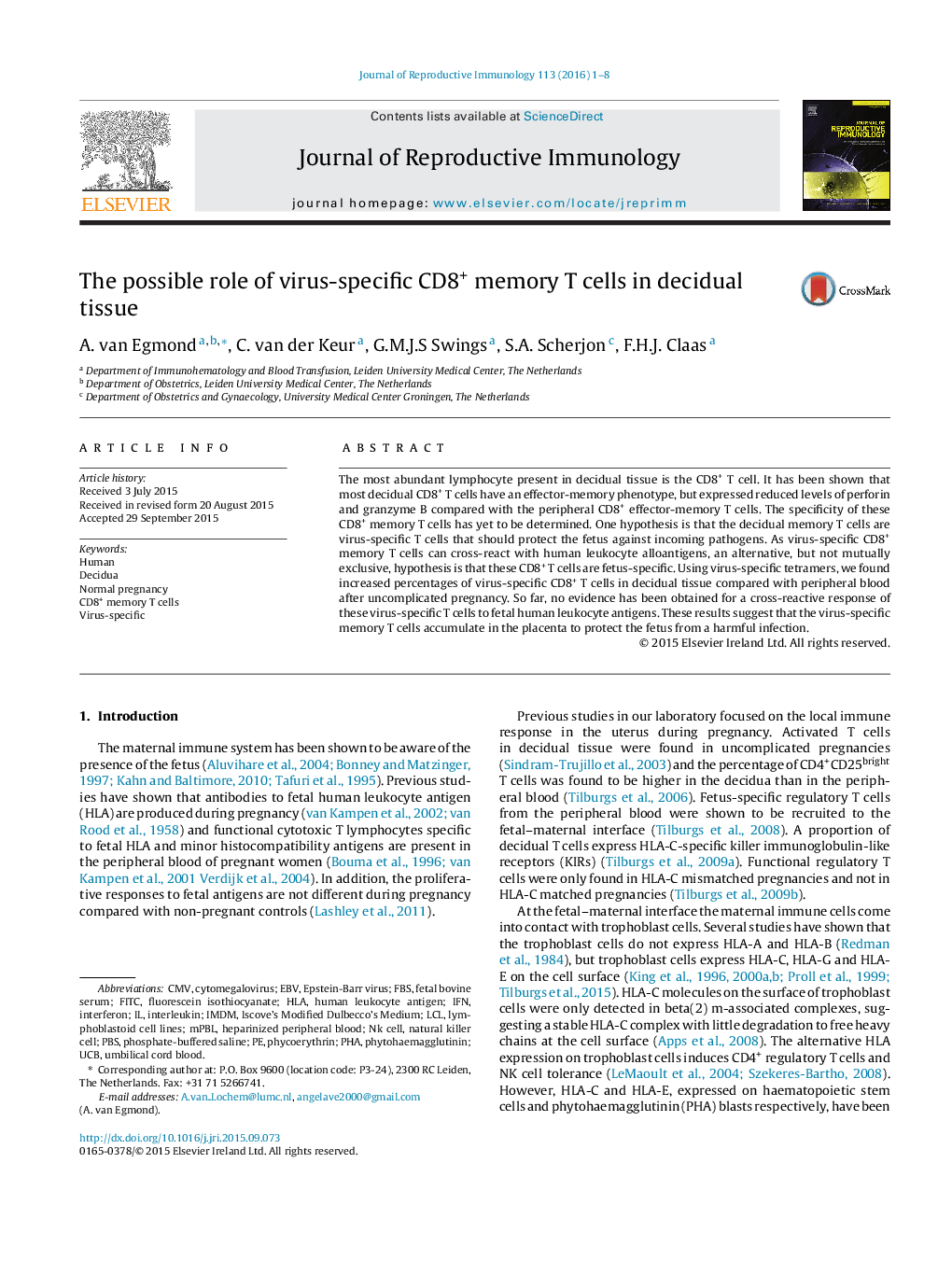| Article ID | Journal | Published Year | Pages | File Type |
|---|---|---|---|---|
| 6187827 | Journal of Reproductive Immunology | 2016 | 8 Pages |
â¢We investigated the specificity of CD8+ T cells in decidual tissue.â¢Increased percentages of virus-specific CD8+ T cells in decidual tissue.â¢Virus-specific CD8+ cells did not react with fetal cord blood HLA.â¢Virus-specific T cells accumulate in the placenta and may protect the fetus.
The most abundant lymphocyte present in decidual tissue is the CD8+ T cell. It has been shown that most decidual CD8+ T cells have an effector-memory phenotype, but expressed reduced levels of perforin and granzyme B compared with the peripheral CD8+ effector-memory T cells. The specificity of these CD8+ memory T cells has yet to be determined. One hypothesis is that the decidual memory T cells are virus-specific T cells that should protect the fetus against incoming pathogens. As virus-specific CD8+ memory T cells can cross-react with human leukocyte alloantigens, an alternative, but not mutually exclusive, hypothesis is that these CD8+ T cells are fetus-specific. Using virus-specific tetramers, we found increased percentages of virus-specific CD8+ T cells in decidual tissue compared with peripheral blood after uncomplicated pregnancy. So far, no evidence has been obtained for a cross-reactive response of these virus-specific T cells to fetal human leukocyte antigens. These results suggest that the virus-specific memory T cells accumulate in the placenta to protect the fetus from a harmful infection.
